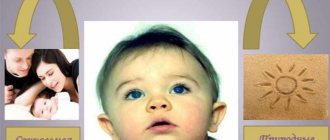Self-knowledge is the process of a person comprehending himself. Through self-knowledge, a person understands himself as a person, gets to know his “I,” and studies his psychological and physical abilities. Self-knowledge is a mental process that ensures integrity, unity and personal development. This process begins in infancy and is implemented throughout life.
To understand what self-knowledge is, one should trace the main aspects of its formation. The process of self-knowledge is formed in stages as the external world is reflected and the gradual knowledge of oneself as a unique person.
Personal self-knowledge includes three levels that correspond to three areas of the individual’s organization. At the biological level, knowledge of oneself is accomplished as a separate, autonomous organism. The social level expresses the ability to study, master skills and master the norms of behavior in society. The personal level represents the ability to make choices, make decisions, coordinate one’s behavior, and organize one’s life.
Basics of self-knowledge and self-development
Self-knowledge always has its own direction, the purpose of knowledge. What does a person study throughout his life? W. James identified 3 main areas:
- Physical personality - includes the bodily shell and everything connected with it (appearance, body organs, health).
- Social personality - arises as a result of understanding and recognition by other people of the personality of another person.
- Spiritual personality is the essence of a person on a spiritual level, the characteristics of a particular individual.
There is also an interpretation of human nature as a biosocial creature. There are social and biological levels. V.V. Stoletin proposed the following classification:
- Biological individual (has a special nervous system, body structure, body characteristics),
- Social individual (emerges in the process of studying the surrounding world, skills and knowledge of humanity),
- Personality (builds his own path in life, makes choices, knows how to coordinate a pattern of behavior).
Self-knowledge is carried out at all levels. Moreover, a person becomes simultaneously the one who studies and who is studied. “I” can change in time - “I am now”, “I was”, “I will be”. At the same time, there are certain relationships between the object and the subject, namely, self-knowledge at the beginning, self-control, self-regulation - as a result of the results obtained.
The basics of self-knowledge and self-development presuppose a clear relationship between concepts.
- Introspection;
- Self-analysis;
- Comparison with others (ideally with yourself);
- Setting goals for the future;
- Self-development.
The theory of self-development is presented in more detail in the works of Rogers.
What you need for self-development
Actually, development itself, start developing your Soul.
Turn by turn, enter the depths and study it. Only magic gives such opportunities. Draw how you see and feel your Soul, start communicating with it, first at the level of sensations. Feel what is important and interesting to you (and not because everyone else is doing it) and do what interests you. And so, step by step, you will develop self-awareness and, of course, you will be able to learn self-development.
Study the video “Magic where to start?”
Watch the videos
exactly what you need (feels like).
Also check out my conference “Personal Growth”
.
Personality orientation in the works of C. Rogers
Rogers is considered one of the best psychologists of the last century, he founded the psychology of humanism. His concept is based on the individual’s desire for actualization; he identifies the following concepts:
- “Real Self” - includes a person’s awareness of thoughts, values, and attitudes in life.
- “Ideal Self” is a set of ideas about how a person sees his future, what he strives for, and his life experience.
- “Social environment” - includes values and norms, behavioral characteristics inherent in a person’s social environment.
If there are discrepancies in life between the real and ideal state of a person and his implementation in society, mental disorders, neuroses, anxiety, and poor adaptation in society arise. To be in harmony with your Self and achieve an ideal state, you need to gain freedom, learn to listen to your inner voice, and act based on your experience and understanding of life.
Usually, problems arise in a situation where a person lives according to the rules of society, trying not to stand out from the crowd, forgetting about the “Ideal Self”. Rogers, working as a psychotherapist, believed that his task was to reveal the potential of the individual, to help determine and gain freedom through self-knowledge.
His “theory” found its application in pedagogy.
Key rules in the work of a teacher
- pedagogy should contribute to the formation of a healthy and adequate personality, promote personal growth;
- the source of development and growth lies in the person himself, only through comprehension and personal experience, responsible choice is it possible to learn and self-improvement of the individual;
- personal growth and development is impossible without understanding and accepting one’s essence. Respect for yourself and your inner world allows you to take risks and reveal new facets of your personality.
Rogers assumed that self-knowledge and self-development of students would be important components of the pedagogical process. The ideas of this psychiatrist will also be useful to parents in the process of raising a holistic and healthy personality.
Basic qualities of a teacher
- Trusting relationship;
- Stimulate students' internal motivation;
- Share experience, provide assistance in difficult situations;
- Be sensitive to the child’s emotions and feelings;
- Be active in relationships, express your emotions and experiences;
- Understand and know yourself.
Of course, teachers are not always able to find time for each student and promote the full disclosure and development of their personality, so this question applies more to parents, who must know and understand their child and help him develop. Each person in the process of his life asks questions of finding himself, his purpose, which is important for further development and self-improvement. “Know yourself and you will know the world,” the sages said.
The importance of self-knowledge in human life
In youth, a person sets high goals for himself, realizing that self-awareness is the path to enlightenment. By acquiring social status, duties and responsibilities, a person may lose the nobility of impulses that previously gave meaning to life. And existence itself becomes commonplace. At such a moment, it is important to be able to find positive aspects where previously only negativity was observed. This gives additional strength to accept these properties and plays a very important role in improving oneself. A person who is aware of himself as a person is familiar with his own characteristics, differences from others, and can make comparisons. All this will improve the understanding that self-knowledge is the path to enlightenment.
Developmental psychology A. Maslow
Maslow's psychology is also humanistic in nature. He paid great attention to research and identified the main qualities of a self-actualized personality, such as: independence, creativity, philosophical humor, the need for solitude and others.
He believed that humanity is on the threshold of a new psychology, which will allow people to fully reveal their potential and abilities, considering a person as a single and integral mental system. Self-knowledge and self-development of the individual underlie theories of the formation of this personality.
Maslow's Key Findings
- Each person has a special original nature, which is received at birth.
- A person develops throughout life and can develop the data that he received initially. At the same time, the environment (family, school) significantly influences further development.
- Nature has given man the presence of instincts and desires, but over the years, “voices-impulses” reduce their strength as a result of receiving education and total control over oneself. It is these voices that help determine what exactly a person needs, what arouses interest, what he is capable of, and not just what meets the norms and rules of society.
- Personality characteristics may be similar for different individuals, or they may be unique, with their own characteristics. Everyone has needs for love, respect, understanding, and there are personal properties and abilities.
- Human nature is studied both by science and by man himself, using self-knowledge and psychiatric methods.
- Most of the internal, deep thoughts and instincts are suppressed by us and pass into an unconscious form as a result of constant fear, fear of condemnation.
- The inner strength of human nature still remains, periodically makes itself felt, and provides an incentive to develop and find oneself.
- The basis of a person lies in what was given initially; it is important to be able to understand and accept oneself. Moreover, in choosing on the path of life, the main criterion should be the opinion of the individual, not society. Personality is dynamic and tends to develop throughout life.
- The inner essence of a person can be subjected to difficult tests, misunderstandings, and feel rejected in life. Often this leads to real illnesses on a mental level. Difficult situations are considered to be the loss of personality, one’s peculiarities, defining properties, when there is no opportunity to achieve one’s projection, a representation of one’s Self.
- Inner strength is initially positive, the main thing is to learn to use it for good, to stimulate the development of creativity, kindness, altruism, and the ability to love.
Secondary qualities
- Conscience or guilt is an indicator of a person’s correct behavior; it is compared with internal attitudes and values. It is worth listening to your conscience, it will show the way to find your true Self.
- Accepting and loving yourself as a person is necessary for a full and healthy life!
- Self-knowledge is the only, main way of personality development.
- Self-knowledge and self-development require significant efforts of the individual.
- It is important to understand the impact of defense mechanisms - regression, defense, self-preservation. By studying psychiatry, you can understand that realism is also needed in life, since false optimism ultimately leads to disappointment in life.
- The theory of free upbringing assumes that the child himself feels what is for his good; he should be given more freedom of choice and action, and not constantly driven into the framework of requirements.
- Only by following the path of understanding and accepting one’s essence, purpose, and satisfying the needs of the individual, one can become a real person and reveal one’s potential. First of all, we are talking about spiritual needs.
- It is important to remember that without difficulties and disappointments . Therefore, a child must be taught to endure the difficulties of life, while the love of parents and their support is the basis for the formation of a strong personality. Abuse of guardianship can lead to infantilism and inhibit the development of willpower.
- A mature personality is distinguished by a type of cognition . D-cognition and B-cognition are distinguished. Moreover, D is selfish , aimed only at one’s own needs, and D is selfless , the ability to do good, to take care of others. The vector of attention of a person with D-cognition is directed more to the outside world than to purely personal interests.
- For a normal life, a person needs a system of values , his own coordinate system, which will allow him to exist in this world. To create such a system, it is important to study yourself, understand goals and motives, what is good and bad, what has a positive impact on your own dignity.
- A person who can be friends with the unconscious level is often inclined to creativity, and aesthetic education should be the basis of education , psychology and all life.
- An important task becomes - to be above ordinary human problems and troubles , to have a simpler attitude towards life, to form a real and healthy perception of life.
Thus, Maslow’s theory involves the search for one’s inner core, self-acceptance and personality development, harmony with the world around us.
Step-by-step instructions: where to start self-development
They often write to me that they need instructions for self-improvement, asking me to describe what is needed for self-development and what is worth studying.
Fine. By popular demand, I give instructions on how to start self-development: 1. Forget about diplomas.
They don't give you anything here. Self-development is what self-development is all about, it means that you will develop yourself, not for grades and not because everyone else is doing it. School, college, work, retirement - the path is monotonous for the crowd.
You decided to improve yourself. Therefore, you will have to reconsider your range of interests (whether they are yours), habits and acquaintances. What does all this give or take away from you?
2. Look at what you spend your time and energy on during the day?
Is there a payoff, or is it a waste of time?
3. Start doing all your actions consciously and communicate only with the people you need, and not just chat.
A lot of energy is wasted during a conversation. Pay attention to planning your days and keeping diaries; I will tell you about diaries in the video.
4. Realize that there is a Soul inside you, and the body is its Temple.
Generosity is a great Soul, and your task is to grow it.
5. Remove everything that can limit your Life and its possibilities.
In particular, be sure to leave religion, since self-development in religion is impossible and prohibited. The task of religion is not to raise Great Souls, but to milk slaves.
For now, this is a brief instruction on how to engage in self-development. It is important to understand that self-development begins where you are ready to learn magic. Magic is the science of the Universe; without knowing the building called the World, you do not know yourself.
Psychology of Rubenstein
Self-knowledge and self-development of a person occurs in the process of communication with other people, so a person realizes his characteristics and works on personality characteristics. A person’s character is partly an innate thing associated with the type of nervous system, and partly acquired through life and accumulated experience.
To some extent, the study of character is related to Maslow’s theory, since a characterless person does not have a rigid value system, but a person with a strong character clearly understands his purpose and is confident in his coordinate system, adheres strictly to his line of behavior. The concept of “personality” arises as a result of self-awareness of one’s “I” and one’s actions.
Self-knowledge
Self-awareness arises as a result of human development, mastering new knowledge, understanding one’s capabilities, and managing physical processes. Independence develops in the process of mastering speech and service skills, and later manifests itself in the ability to set tasks, goals, and find the main direction for the development of one’s personality.
Self-knowledge and self-development of the individual are important components in a person’s life; these processes are clearly visible in adolescence, when many questions arise before the individual. A person determines his purpose in this world, the abilities and capabilities of his “I”. These are the first attempts to understand yourself.
Each person has character traits and personal qualities that distinguish him from others. Understanding oneself leads to the formation of personality, awareness of the need for changes in certain directions, and the establishment of one’s own principles of life.
A personality is a person with his own worldview, a clear position in life, which arose as a result of great conscious activity, understanding of himself and life in general.
Individuality - a bright, unique person
Personality is a more global concept, and its formation requires quite significant efforts, attention to this issue and determination.
Such a person has his own characteristics, a “handwriting”, and consciously distinguishes himself from the general mass of people, which presupposes independent thinking and the presence of willpower. At the same time, the depth of personality is determined by the richness of the inner world and relationships with people.
Self-isolation leads to devastation of a person, although to a certain extent it is necessary for carrying out internal work and understanding one’s essence. A personality feature is the ability to look at the world from the outside for a more complete understanding of processes.
A developed person also helps others in the process of self-development. A real personality cannot cause indifference; there can be friends or enemies. Such a person always has strength and an active beginning. Self-awareness develops along with a person throughout life; self-reinterpretation occurs in connection with new experiences.
Each person goes through the process of understanding life, asks himself questions and finds answers, understanding what is most important for him and brings value. Accumulated experience and understanding of life leads to the formation of wisdom. Personality is created and built by a person throughout his conscious life, each person develops in a special way.
It is very important to carry out self-knowledge and self-development in a temporary period and ask questions: what was I like? - what am I? - what do I want to be? However, it is important to understand that a person needs to develop his existing potential, and in the process of labor and creation of something, the personality grows. There is a great relationship between a person and his result of activity.
Personality
A person is always of interest if he can create something significant and it is clear that this is not the limit of possibilities. The development of personality over time can be tracked through human activity, in which it manifests itself and constantly develops.
A person’s characteristics are not always at the forefront of actions, but can also be a consequence. And abilities develop as a result of constant practice; the more attention a person directs to a certain area, the higher the likelihood of success in it and achieving high results.
Each person has his own life story, which can be reflected in an autobiography or resume; they will contain data about the person’s training, work, achievements - thus, the relationship of human development through activity can be traced.
In order to become a historical figure, you need to do things, create creations that will be in the public domain and go down in the history of society.
Self-knowledge as a process of personality development
Universal human values in development and self-knowledge tend to be acquired throughout life. A number of theories and approaches have been developed that assume the individual’s readiness for this process, including the gradual passage of its stages. First, the child learns to distinguish himself from others. Forming with age, he develops beliefs about himself. He also finds motivation that encourages him to develop himself and improve his life.
Self-knowledge determines the culture of behavior, the specificity of thinking and feelings. As a result, everyone can create a scenario of existence and improve it by changing the ways of realizing consciousness.
Basics of self-development and characteristics
The basics of self-development presuppose that a person has the ability to shape his life and achieve his tasks and goals. In addition to activity, this process is also influenced by human activity. He can be socially active (initiative, executive) or socially reactive (impulsive, passive). Social activity goes through the following development paths:
- Standard level : schoolchildren, imitation, repetition of actions.
- Normative-personal - the teenage period, one’s own outlook on life and attitude to certain issues appears.
- Personally productive, productive and creative - an adult who makes a contribution to social life, creates innovations, modernizes the old, introduces elements of creativity into the process of life.
Indispensable conditions for self-development are initiative, and later - consciousness and independence. Social activity contributes to the development of abilities to make one’s own choice of development paths along the path of life, and responsibility for one’s actions appears. Development is impossible without achieving the necessary level of self-awareness, understanding and analysis of one’s personality.
The foundations of self-development directly depend on a person’s inner world and his analysis of real life and the situation at a given stage. The inner world is unique and is partly a reflection of the outer world. There are also suggestions that it develops throughout life, together with the personality itself, under the influence of the surrounding reality.
There are several stages of self-development
- revitalization (the child learns to communicate, understand his individuality),
- animation (the child masters the outside world),
- personalization (learning the rules, norms of life with mentors and understanding one’s role in creating a life story),
- individualization (in the process of communication, an idea of one’s personality is formed, characteristics are revealed, and the need for introspection and responsibility for oneself arises),
- universalization (a person goes beyond his individuality, unity with superhuman values, faith or spirituality appears).
The foundations of self-development lie in a person’s desire for self-improvement, improving his self throughout his life.
Types of self-awareness
In psychology, the following types of self-knowledge are designated:
- indirect;
- natural;
- self-confession;
- reflection;
- knowledge of oneself through knowledge of others, in the course of communication, play, work, developmental activity.
In practice, there are such methods of self-knowledge as:
- analysis;
- self-observation, the following forms are used: diary, questionnaire, tests;
- truthful internal self-report;
- thinking about what is happening in the mind.
A person devotes his whole life to getting to know himself, sometimes this happens unconsciously. The process begins with birth and ends with death. Formation develops in stages as the external and internal world of the individual is reflected.
You can get to know yourself through gradual, conscious recognition of others. The baby does not separate himself from the surrounding space. At the age of 3-8 months, the child learns to identify himself, his organs, and the body as a whole from the environment. This is called self-recognition - the first step towards self-awareness. For a child, parents and surrounding adults are the main resource of information about himself. It is the parents who give the name, teach them to respond to it, etc.
From the moment such an expression as “I want it myself” begins to appear in a child’s vocabulary, a new stage of self-knowledge begins. The child begins to use words to describe himself, to characterize himself.
The study of one’s own qualities occurs through activity and contact with the outside world. In the process of communication, people get to know each other and evaluate others. These indicators directly affect an individual’s self-esteem.
Self-esteem is an emotional and subjective position in relation to one’s image.
Factors that influence self-esteem:
- comparing your Ego with a fictitious standard;
- assessing the people around you and comparing yourself with them;
- own attitude to successes and failures.
The ego concept is a more or less stable, conscious concept of a person about himself. This idea is usually recorded verbally. The concept can be either adequate or inadequate. A person is capable of inventing an image for himself that does not correlate with reality and comes into conflict with it. A correct assessment of oneself helps to successfully adapt to the world and the people around you.
Formation of a child’s personality in communication
Communication can be represented as a certain type of activity aimed at the mutual exchange of information between interacting individuals. It is of great importance in the development of the psyche of subjects and the formation of rational, cultural behavior. Through communications with psychologically developed individuals, thanks to a wide range of learning opportunities, the child acquires higher cognitive abilities. Therefore, directly through active communication with formed personalities, the baby himself becomes a personality.
The communicative interaction of children with adults leads to the possibility of forming in them emotions that correspond to templates generally accepted today in a particular society.
The peculiarities of the formation of a child’s personality are that the acquired new formations of his emotional sphere, developed as a result of verbal interaction, do not remain within the boundaries of exclusively communicative activity, but also enrich the personality as a whole.
Communication in ontogenesis is the primary, predominant form of the baby’s relationship to the environment, which, first of all, presupposes understanding on the part of the second individual. Initially, under favorable conditions, the mother acts as the second communicating party. As children grow older, this form is replaced by a form that presupposes mutual understanding. In other words, with this variation of communication, the baby no longer simply formulates his own desires, but also takes into account the desires of the environment, on which the embodiment of his own “wants” into reality depends. The formation of the personality of a school-age child results from the influence of:
- new relationships with peers (classmates) and adults (school teaching staff);
- new forms of activity (learning) and communication through which it is included in the system of groups (classroom and school-wide).
The result of this stage of formation is the formation of elements of social feelings and the development of social behavior skills (mutual assistance, responsibility for actions, camaraderie, etc.).
Therefore, the junior school age stage provides significant potential for the development of moral personal qualities. This is facilitated by the compliance and a certain degree of suggestibility of individuals, their gullibility, desire to imitate, and most importantly, the authority of the teacher used.
Communication with children becomes a leading activity during puberty. In interpersonal interaction, adolescents recreate relationships that exist in the “adult” world or contrast them. Through personal communication, adolescent children form their views on the meaning of life, relationships between people, and their own future.
We are on Telegram! Subscribe and be the first to know about new publications!
Education and formation of a child’s personality
The first cultural environment for children, including their subject-spatial, event, social, and information environment, is the family.
Close people, to varying degrees of severity, create an individual educational environment (for example, provide nutritious food, buy clothes, purchase coloring books, toys, etc.). The ways of influencing the child, their effectiveness for personal development and how painlessly the crises and stages of the formation of the child’s personality will proceed for him depend on how the educational environment is organized.
Contrary to popular belief, specific educational measures in the family aimed at developing or correcting certain personal qualities of children occupy an insignificant place. Naturally, in home education there are certain requirements, prohibitions, a system of punishment and incentives. However, at the same time, various situations occur every day with the participation of parents, through which educational or training measures are woven. Therefore, the younger the baby is, the more organically the training and upbringing, supervision and care are combined. Home education is characterized by a purely individual and personalized impact, specificity, as a result of which it has a beneficial effect on the initiation of activity, through which the personality of a preschool child is formed.
Children's activity, realized in types of activities, is the basis for the development of social and psychological new formations in his personal structure, because specific individual characteristics and qualities are formed only in the processes of interaction of children with the environment, in their initiative activities.
The family is a fundamental factor in educational influence due to the fact that it is the organizer of all kinds of activities for children. After all, a baby from birth does not have the skills to ensure his independent life. Interaction with the world is organized for him by his parents and other participants in family relationships. This is where the great pedagogical meaning lies. Since even a baby who is lucky enough to be born in a supportive environment is not able to fully develop if his opportunities to actively interact with her are limited or deprived.
Family education is the purposeful interaction of adult participants in family relationships with younger ones, which is based on love, respect for the dignity of the child, and also involves psychological and pedagogical support, protection of the baby and the formation of the personality of a preschooler, taking into account his potential and, accordingly, family values and the morals of society.
The specificity of family influence of an educational nature lies in its ability to act as both a positive factor and a negative phenomenon in the development of personality. A beneficial influence on a person is expressed in love. Since no one will love the baby more than his close circle. Along with this, no other social institution can cause more harm in education and personal formation.
The key conditions that ensure optimal family education are: genuine love for the baby, consistency in educational influence, unity of principles and requirements, adequacy of educational influences. Compliance with these listed requirements is the key to the baby’s inner peace and mental stability.
Online program "Self-knowledge"
In this program, in just 4 weeks, with the help of psychological tests and exercises, you will find out what you really want in life, understand your strengths and weaknesses, realize the characteristics of your internal motivation and thinking, learn to use the characteristics of your character, determine your values, creative and professional predispositions that will help you find a job you like; you will understand how to demonstrate your leadership and team qualities not only at work and in business, but also in family and relationships. In addition to all the knowledge gained, you will receive recommendations for practical use in life. Find out more...
The world is a mystery, but man is no less a mystery, and the stronger our desire to solve it, the more fulfilling and harmonious our whole life will be. Remember this!
We also recommend reading:
- Storytelling
- Definition of values
- The art of managing yourself
- What methods of self-knowledge exist and how to apply them
- Rules and ways to improve memory
- Techniques and exercises for mindfulness
- Something very important
- Practical benefits of self-knowledge
- 6 steps to help you understand your purpose
- How to get to know yourself better?
- Exercises for self-knowledge
Key words:1Self-knowledge
Exercises for self-knowledge
Knowing yourself is perhaps one of the important tasks of any person. When you do this, you understand a lot about yourself, are aware of your strengths and weaknesses, and learn to respond correctly to problems and failures. It is important to know the answers to many questions, for example, what do you constantly think about, what is important to you, what do you love, what are you interested in, what are your beliefs, including limiting ones, and many others. And to answer these questions, you need to learn to do certain things that allow you to know yourself better. We want to introduce you to them. Read more…
9
Personality is...?
Personality is a concept that is a social characteristic of a person.
The qualities that determine the uniqueness of a particular person are formed under the influence of relationships with surrounding people, under the influence of processes occurring in society. Each social system shapes a person’s personality through education - a process with clearly defined goals and thought out to the smallest detail.
To become an individual, a person must learn social experience and, on the other hand, give his contribution to society within his means. At the same time, he reveals and demonstrates his qualities inherent in him by nature and formed by society through upbringing. In the process of human development, his spiritual, mental and physical characteristics move from quantitative changes to qualitative ones.











